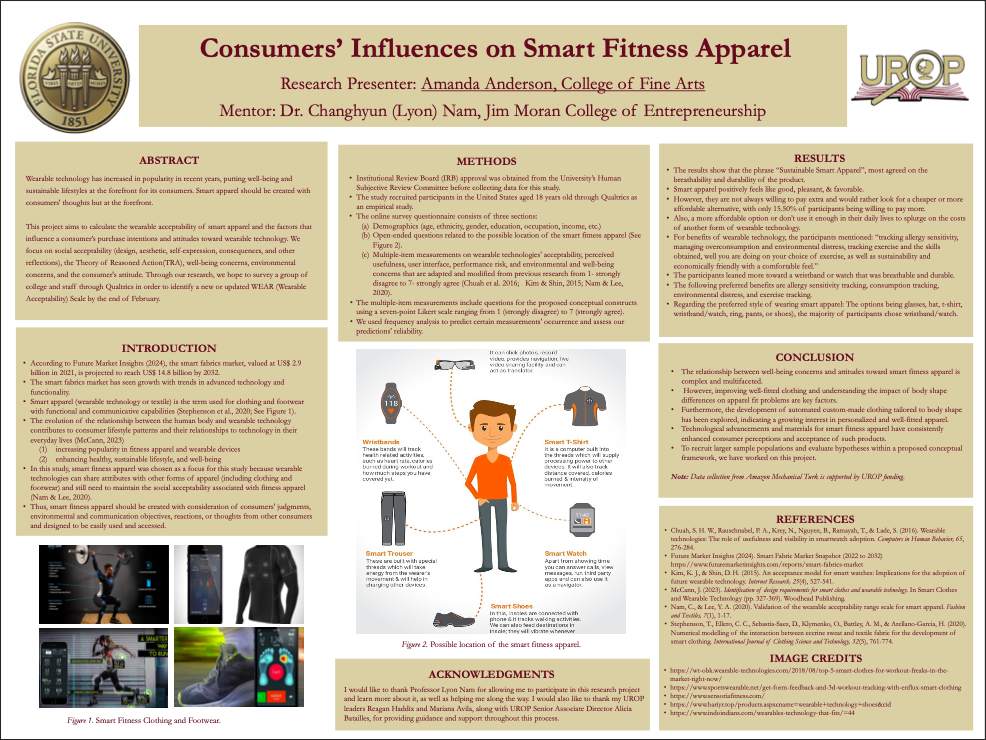Research Symposium
24th annual Undergraduate Research Symposium, April 3, 2024
Amanda Anderson Poster Session 4: 2:45 pm - 3:45 pm /424

BIO
Amanda Anderson is a third-year Studio Art major in the Art Education BA/MS program. Her hobbies consist of drawing, animating, designing, listening to podcasts on true crime and paranormal activity, and reading. She has a heavy interest in research that began at Miami Dade Community College where she participated in Mellon Foundation's Humanities Edge Undergraduate Research Program for three semesters, publishing two research projects during her stay. During the transition to Florida State University from Miami Dade College, Amanda has continued her interest in research by entering their Undergraduate Research Opportunity Program and gained new and formative experiences over the two semesters she has participated in this program.
During the undergraduate and graduate years she has remaining, Amanda plans to continue pursuing research and expanding her knowledge on different topics while finishing her degree and continuing to develop her portfolio for animation. Anderson's career goals are to be a high school art instructor while staying active in the animation industry as a character designer and animator. Being able to teach adolescence how incorporating art and technology into their personal research, be it for interdisciplinary research studies or personal work, offers endless possibilities is a goal of hers.
Consumers’ Influences on Smart Fitness Apparel
Authors: Amanda Anderson, Dr. Changhyun (Lyon) NamStudent Major: Studio Art, Art Education
Mentor: Dr. Changhyun (Lyon) Nam
Mentor's Department: Jim Moran College of Entrepreneurship Mentor's College: Jim Moran College of Entrepreneurship Co-Presenters:
Abstract
Wearable technology has increased in popularity in recent years, putting well-being and sustainable lifestyles at the forefront for its consumers. Smart apparel should be created with consumers' thoughts but at the forefront.
This project aims to calculate the wearable acceptability of smart apparel and the factors that influence a consumer’s purchase intentions and attitudes toward wearable technology. We focus on social acceptability (design, aesthetic, self-expression, consequences, and other reflections), the Theory of Reasoned Action(TRA), well-being concerns, environmental concerns, and the consumer's attitude. Through our research, we hope to survey a group of college and staff through Qualtrics in order to identify a new or updated WEAR (Wearable Acceptability) Scale by the end of February.
Keywords: smart apparel, sustainability, design, well-being, consumer attitude


